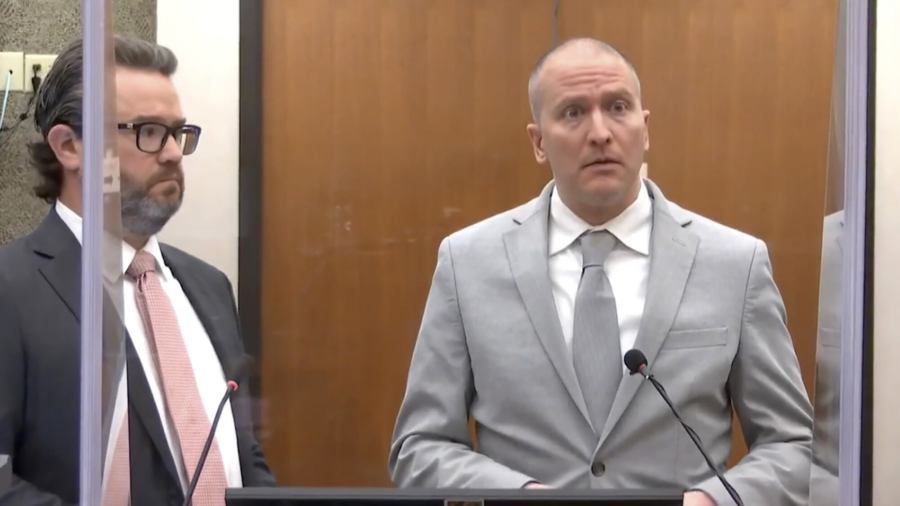The Supreme Court refused to take up the appeal of Derek Chauvin, the former Minneapolis police officer convicted of second-degree murder in the death of George Floyd.
The Court did not explain why it declined to grant the petition for certiorari, or review, in the case. No justices dissented from the unsigned order issued on Nov. 20. At least four of the nine justices must vote to grant the petition for it to move forward to the oral argument stage.
The Minnesota Supreme Court dismissed Mr. Chauvin’s petition in a one-sentence order on July 18 without explaining why. This means his conviction and 22-and-a-half-year sentence under state law will remain in effect.
Mr. Chauvin had asked the Minnesota Supreme Court to take up his case in May after the Minnesota Court of Appeals rejected his claim that he did not receive a fair trial the month before.
Mr. Chauvin, a white man who was a member of the Minneapolis police department at the time of the incident in March 2020, knelt on the neck of Mr. Floyd, a black man, for approximately nine minutes while he was handcuffed in a prone position after being detained on suspicion of passing a counterfeit 20-dollar bill at a convenience store.
A passer-by captured video footage of Mr. Floyd complaining while detained that he couldn’t breathe, and the video went viral, leading to protests in the United States and around the world.
The death of Mr. Floyd led to widespread public backlash and a violent nationwide reaction against police that continues to affect the nation’s politics, criminal justice system, and culture, as well as riots across the country that resulted in billions of dollars in damage.
Five doctors testified at the trial that Mr. Floyd died of positional asphyxia.
The local medical examiner, Dr. Andrew Baker, who carried out the autopsy, said the use of force was the primary cause of death but also identified the deceased man’s arteriosclerotic and hypertensive heart disease, fentanyl intoxication, and use of methamphetamines as significant factors in his death.
Another medical expert, Dr. David Fowler, Maryland’s former chief medical examiner, testified that Mr. Floyd’s heart issues were mainly to blame for his death.
Use-of-force expert Barry Brodd, a former police officer, testified that Mr. Chauvin’s actions were reasonable and complied with the police department’s policies, a claim that was denied by Minneapolis police chief Medaria Arradondo.
Mr. Chauvin was convicted on April 21, 2021, of second-degree unintentional murder, third-degree murder, and second-degree manslaughter after jurors deliberated for two days.
In December 2021, Mr. Chauvin also pleaded guilty in federal court to violating federal laws on two separate occasions.
He was sentenced in July 2022 to 252 months in prison—or 21 years—with credit for time served for depriving Mr. Floyd and an unidentified 14-year-old child of their constitutional rights.
The case is Chauvin v. Minnesota (court file 23-416).
This is a developing story. This article will be updated.
From The Epoch Times


